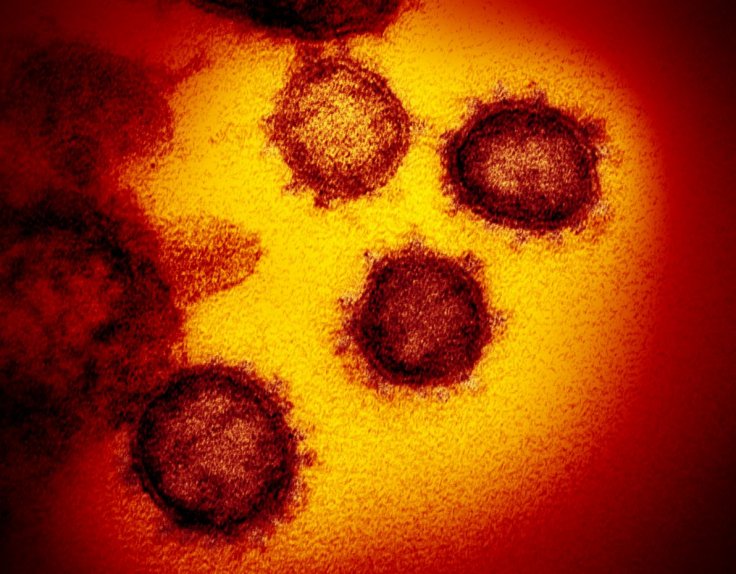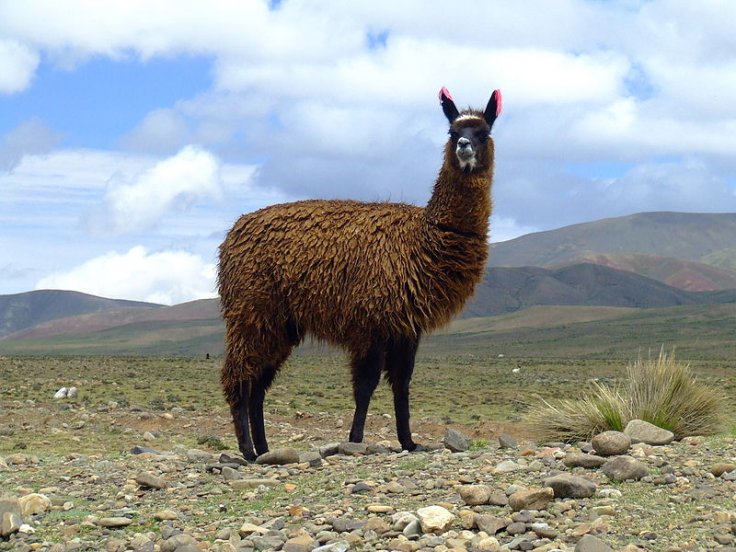The U.S. researchers have found that Moderna's COVID-19 vaccine led the participants of the trial program to produce antibodies that can neutralize the novel Coronavirus, even though it caused minor side effects in many patients, revealed the first published data from an early-stage trial. But some scientists found their next hope in llamas that can help patients with severe Coronavirus infection.
As per the new finding, a team of researchers from the Rosalind Franklin Institute, Oxford University, Diamond Light Source, and Public Health England claimed that antibodies derived from llamas have been shown to combat Coronavirus in the laboratory experiments. The scientists hope that the antibodies, which are named as 'nanobodies' due to their small size, could be developed as a treatment for severe Coronavirus patients.

The antibodies are being produced when the immune system is under attack or responding to infections. In the case of llamas, camels, and alpacas, these mammals are capable of producing small antibodies with a simpler structure naturally that can be turned into nanobodies.
Research on Nanobodies
The British scientists engineered the nanobodies using a collection of antibodies taken from llama blood cells and found that these nanobodies bind tightly to the SARS-CoV-2 virus's spike protein while blocking it from entering and infecting human cells.
As per the study, which was published in the journal Nature, the researches from top U.K. bases scientific organizations noticed that the nanobodies bind to the spike protein in a new different way to other antibodies already found. In Texas, at the McLellan lab in Austin, scientists are researching on llama antibodies as a treatment for the novel Coronavirus.
After conducting the new study involving nanobodies, Professor James Naismith, director of the Rosalind Franklin Institute and professor of structural biology at Oxford University, said that these nanobodies can be used in a similar way to convalescent serum, effectively stopping the progression of the Coronavirus in infected COVID-19 patients.
He explained that the team of scientists in the U.K. were able to combine one of the nanobodies with a human antibody and show the combination was even more powerful than either being tested alone. In addition, Naismith said, "Combinations are particularly useful since the virus has to change multiple things at the same time to escape – this is very hard for the virus to do. The nanobodies also have potential as a powerful diagnostic."

The Oxford University Professor Ray Owens, who leads the nanobody program at Franklin, has claimed that the scientists are now hopeful that they can push the breakthrough into pre-clinical trials. As per Professor David Stuart from the Diamond Light Source and Oxford University, the electron microscopy structures have revealed that the three nanobodies can bind to the virus spike, "Essentially covering up the portions that the virus uses to enter human cells."
Researchers are now screening antibodies derived from "Fifi", one of the 'Franklin llamas' based at the University of Reading in the U.K. The sample was taken after the animal was immunized with harmless purified virus proteins. They are looking at the preliminary results which revealed that the immune system of the particular llama has produced different antibodies from those already identified and the researchers claimed that it will enable cocktails of nanobodies to be tested against the novel Coronavirus.
The Role of B and T Cells
In a separate study, the researchers at Peter Doherty Institute for Infection and Immunity (Doherty Institute) have investigated how the human immune system, especially B and T cells respond to the spike. It is found that while the B-cells are responsible for creating the antibodies that recognize novel Coronavirus, T-cells play a key role to provide support to develop the B-cell response.
Jennifer Juno from the University of Melbourne, a postdoctoral researcher at the Doherty Institute who was involved in this study said they analyzed people who had recovered from Coronavirus with mild or no symptoms. As per the researcher, it was noticed that those who showed strong neutralizing antibody activity had a robust B cell response.
But as per Juno the most surprisingly "we also found that a particular subset of T cells, called T-follicular helper cells, was a great predictor of an effective immune response." So, now it is known how the immune system responds to the spike protein.
"We have these biomarkers, or predictors of what elicits a good or poor immune response to COVID-19, we can look at the vaccine candidates and see what will offer the best protection," said Juno.
What About Moderna Inc.?

Based on the newly published results from the early stage Moderna vaccine trials, Betty Diamond, director at the Feinstein Institutes for Medical Research, who was not involved in the trial program said, "It certainly is a good beginning," adding that "There are certainly lots of things we don't know yet right now."
Anthony Fauci, director of the National Institute for Allergy and Infectious Diseases, the National Institutes of Health (NIH) branch that conducted the trial said, "The data really look quite good. There were no serious adverse events."
This new data mirrors the results from similar COVID-19 vaccines being produced by biotech companies like Pfizer and BioNTech, which were released on July 1.









